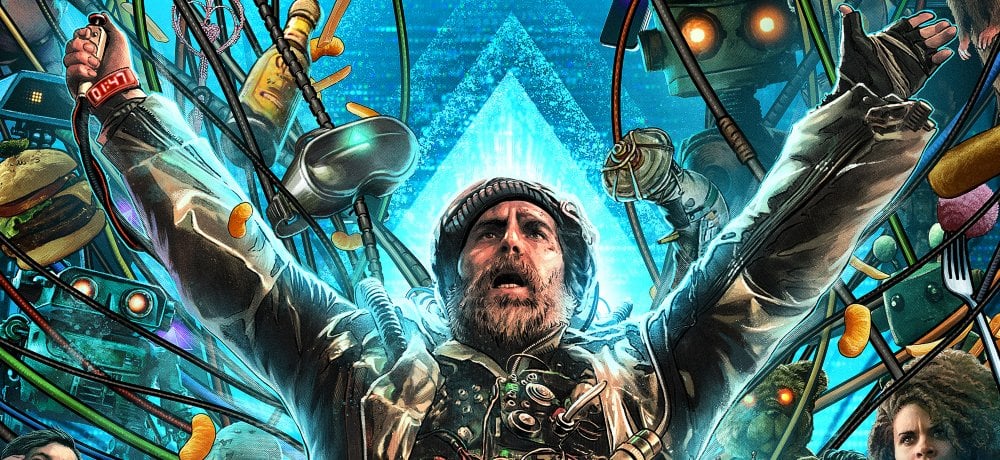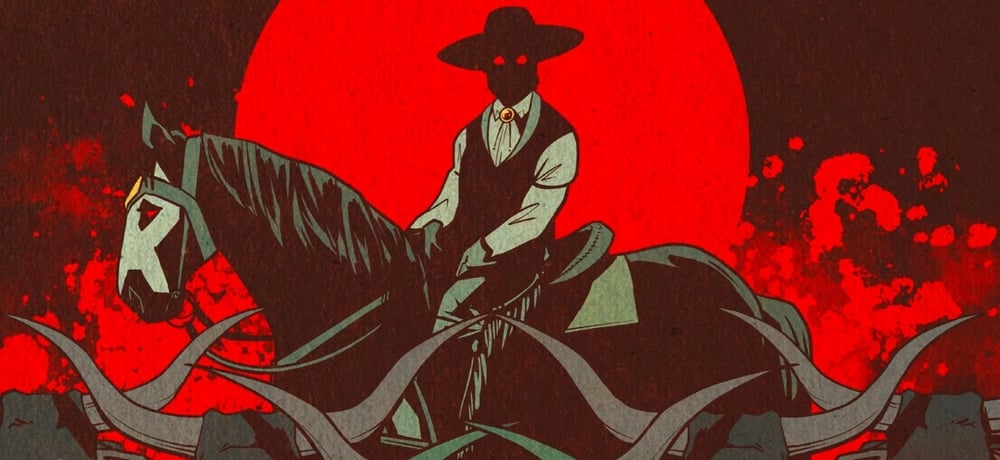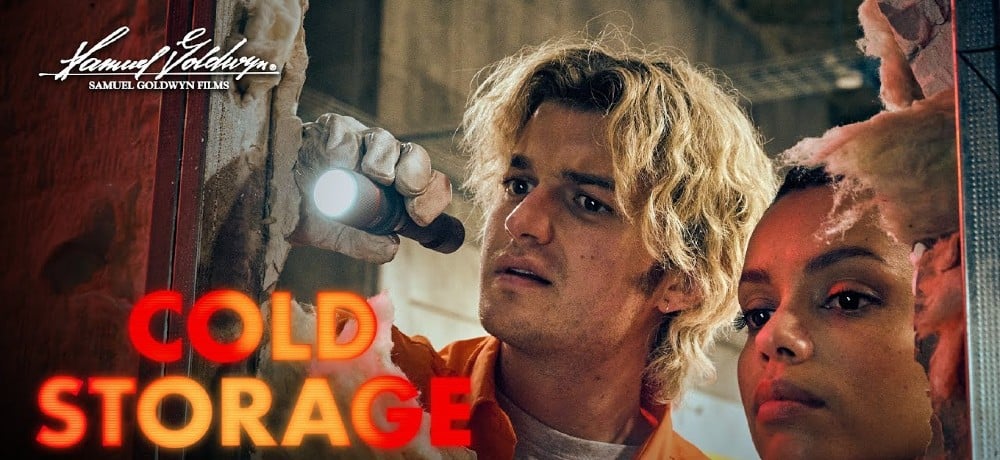






For Leigh Whannell’s adaptation of The Invisible Man, Oliver Jackson-Cohen is tasked with bringing the titular villain to life, which may sound easier than it was, considering the film’s premise. At a recent press day for the film, Daily Dead spoke with Jackson-Cohen about what initially drew him into The Invisible Man and how he made the most of his limited, but still powerful, screen time in the film. Oliver also discussed the collaborative process he shared with Whannell and Elisabeth Moss, as well as his other experiences working in the horror genre on series like Mike Flanagan’s The Haunting of Hill House and Dracula (2013–14).
Look for The Invisible Man to invade theaters everywhere this week, beginning on Thursday night (you can read my review HERE).
Great to speak with you, Oliver. This movie was absolutely incredible and I usually would feel bad saying this, but you are a real jerk in this (laughs).
Oliver Jackson-Cohen: That’s good to hear—mission accomplished (laughs).
It's an interesting performance, especially since you are playing a character who has a limited amount of time on screen because of the premise of the film. From your perspective, one, what was the initial appeal coming into this project? And two, how do you work to make those scenes that you do have, count as much as they do here? Because they're fantastic.
Oliver Jackson-Cohen: Oh, thank you so much. I think that the initial draw of the movie was Leigh's script. The fact that this is a property that's been around with us, 80, 90 years and he was able to ground it into something that's incredibly real, with the crux of the story being about domestic abuse and about women being gaslit and not being believed. There was something about that I just thought was so brilliant and so important.
And so a lot of it came down to the script that he wrote. And then, Leigh and I spoke an awful lot about Adrian. I went off and did a bunch of research and then Lizzie, Leigh, and I got in a room and Lizzie and I spoke a lot about what the dynamic of this relationship was like. Because even though it's not seen on screen necessarily, you get glimpses of it. There are no flashbacks, you don't see what it was actually like. We needed to create something that was honest and true and disturbing—all of those things. We spent a lot of time in a rehearsal room discussing Adrian and discussing what the dynamics and the reality of that relationship was like. So, I'm really glad that you think that because we put a lot of work in for it all to be taken out in a way.
It felt very important that we tell the story truthfully. And I didn't want to play Adrian as an outright villain, either. I think that's boring and it cheapens the story, it cheapens the experience that so many of these women and men seem to have in these horrific relationships. So, it felt important that if we were going to portray this, Adrian needed to be a real person and I needed to fully explore exactly who he was so that he was a fully fledged human being.
Absolutely. I think if you would have come in twirling the mustache and winking at the camera, I think that you would have lost people with that. And I think what you were talking about really comes through in that dinner scene. There's a part of us as the audience where if Elizabeth's character of Cecilia is sure that Adrian is evil, we believe he is evil. But there is still that little pendulum of doubt that hangs over just exactly how far Adrian has gone with everything, and there's a subtlety to the way Adrian interacts with Cecilia there. Is it all an act? Is it not an act? Can you discuss peeling the layers back on that moment in particular, because it is a really crucial scene to the movie and I think it's played out so well between you and Elisabeth.
Oliver Jackson-Cohen: Oh, thank you. Well, I think that we had the same thought process. But definitely coming in, I didn't want to play Adrian as a mustache twirling, winking villain. It's boring. And I also think it's disrespectful, even though it's a horror movie, because this is a story that is based in truth.
It felt important to figure that out and to find a way in to do that. And so, my initial thing was, well, if he's such a master manipulator, he would put all of this as an act. His whole life is about the different faces that he's able to put on in different environments. And the way that he's consistently observing and processing what's happening in front of him and then acting accordingly in order to get what he wants, is what manipulation is, at its core. We all wanted for an audience to be like, "What the fuck is this guy?" But he seems really nervous and we wanted to confuse an audience, because I think it's infinitely more interesting then. I definitely thought it was a much more interesting way to go with it, and I think it's a much more truthful way to go with it because that is exactly what these types of people do.
When you have a locale that also ends up informing a character as much as it does here, especially once you get into Adrian's lab and everything like that, I’m curious as to how much that helps you, in terms of being able to really put a point on who this guy is and what makes him tick?
Oliver Jackson-Cohen: Oh, so much. I feel that you soak all of that stuff up. Leigh was incredible because the initial script was so descriptive in that way. There was so much information, there was so many nuggets in it that you could take and put together. And so all of that stuff, it's just added bonuses. Then everything else, Lizzie and I sat for hours and hours and hours talking about the dynamics and everything, what their relationship is like. Instances that had happened when they were making dinner and all of these different things.
We felt we had to be incredibly specific in order for it to work. I think what ultimately happens is that the terror that she feels throughout the movie and this looming threat of him is present because we were so specific about what we needed and what the reality of their relationship is like.
I know we're getting close on time, but before we go, I wanted to ask you about your experiences working in the realm of genre storytelling. You're obviously no stranger to the world of genre storytelling, with The Haunting of Hill House, which you were fantastic in, and there’s Dracula, of course, as well. Is there something in particular about working in the horror genre that speaks to you as an actor? Is it just a great way to dig into characters you don't always get to dig into?
Oliver Jackson-Cohen: Well, I think Dracula was a little bit questionable (laughs), but I think Hill House and Invisible Man both provided me with great opportunities. It just so happens that they are in the horror genre. The character in Hill House and the character in Invisible Man are such fascinating characters, nd thae depth of what you can do with that is fascinating.
I personally love horror. I think it's a great genre, I love it. But I don't think that the work that I've done specifically in the past couple of years has been specifically pinpointed to wanting to do horror. I think that there are really, really fascinating characters that are being written in the genre, and you can explore these stories and tell these stories in a way that's made palatable. Ultimately, Leigh Whannell has written a story about domestic abuse, but he's cloaked it in horror. And the same with Hill House. It's about childhood abuse, but it's cloaked in horror. So, it's palatable to an audience. And as an actor, you get to mine all these incredible characters to get to go to these really incredible places that you probably wouldn't get to go otherwise, and I think that is great.
---------
In case you missed it, go here to catch up on our previous coverage of The Invisible Man (2020)!